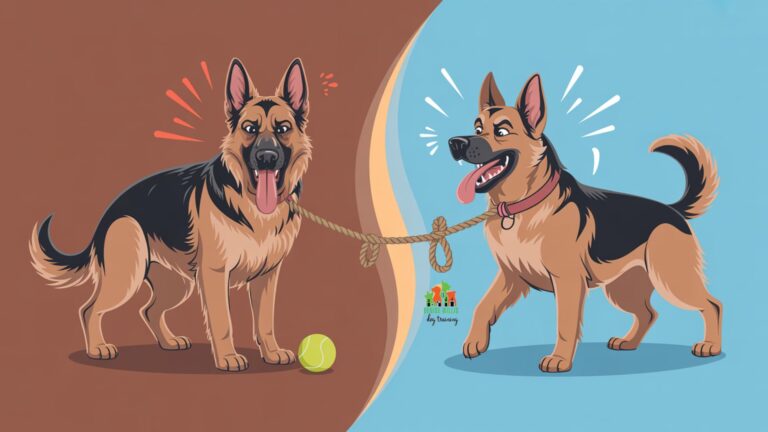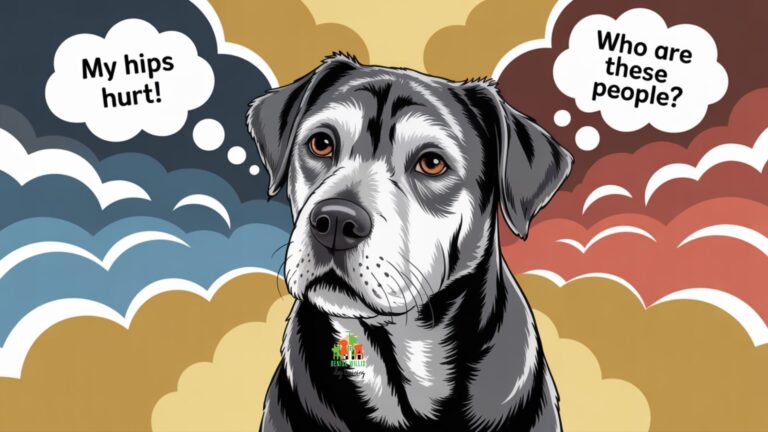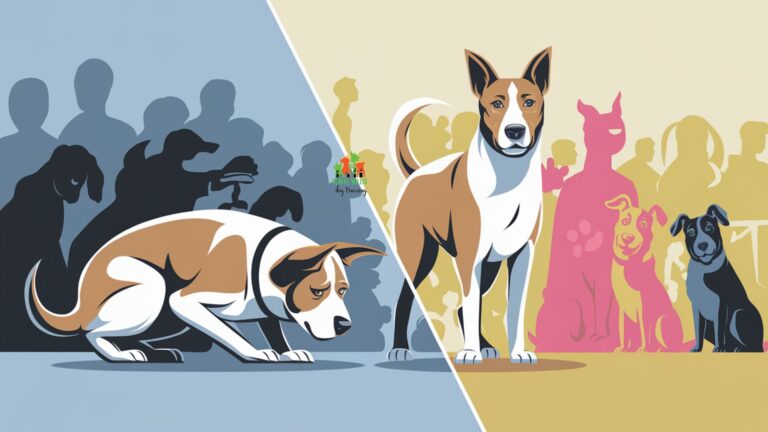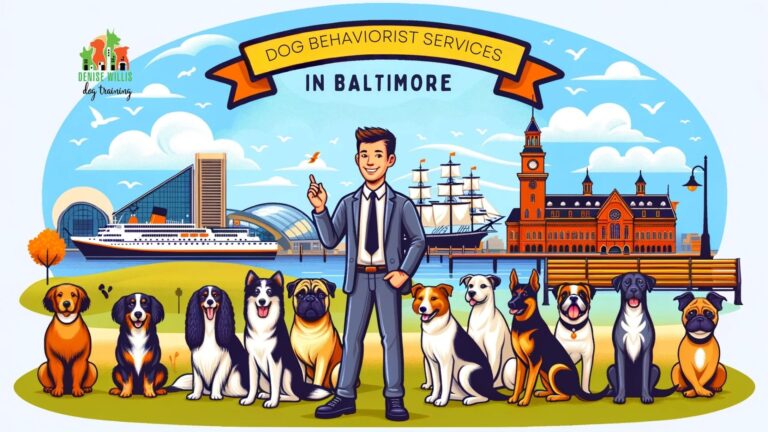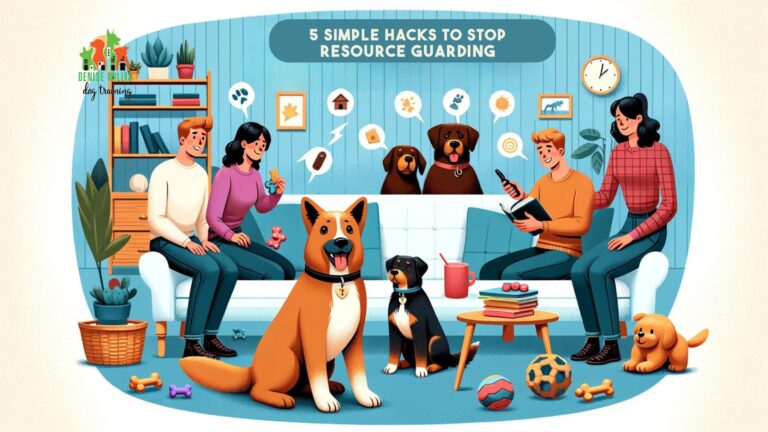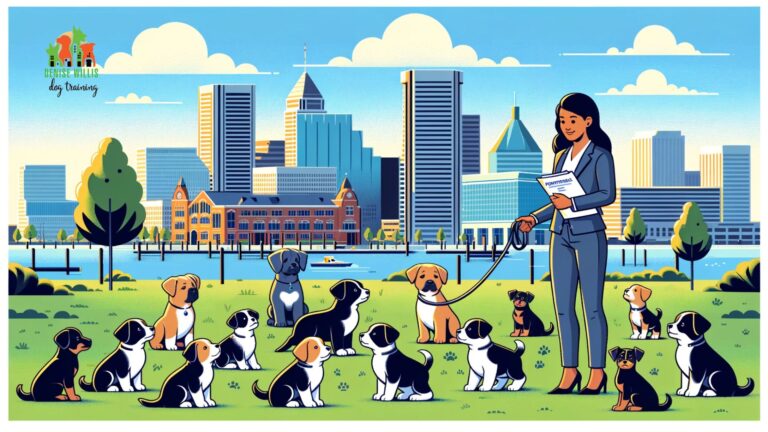Aggressive Dog Training Baltimore: Taming Territorial Tendencies with Ease
📍 Service Area Notice: DW Dog Training provides in-person training services exclusively in the Greater Baltimore area. While our blog content is designed to help dog owners internationally, our hands-on training services are locally focused. For readers outside our service area, we hope you find value in our articles and welcome you to reach out with questions!
Aggressive behaviors like barking, lunging, snarling, and snapping can be scary and dangerous. According to dog trainers and behaviorists in Baltimore, aggression usually stems from fear, lack of protection, or feelings of vulnerability. While it may seem hopeless, the good news is that aggression is often a learned behavior that can be overcome with proper training.
This guide will cover the major causes of aggression, the risks of not addressing problem behaviors, how customized training can help, what to expect during the training process, and how to choose an experienced Baltimore dog aggression trainer. With consistent training, owners can transform an aggressive dog into a calm, happy companion.
Key Takeaways
- Aggressive behavior in dogs often stems from fear, lack of socialization, or negative past experiences. While serious, aggression can frequently be improved through customized training programs.
- Leaving aggression issues untreated can pose dangers to families and liability risks for owners. Consequences may include bites, legal issues, housing problems, surrender, and even euthanasia.
- Specialized training focuses on building obedience foundations, changing emotional responses to triggers, and giving dogs alternative behaviors. A comprehensive approach addresses the root behavior causes.
- Owners can expect an initial consultation, early obedience training, gradual trigger introductions, real-world practice, and long-term maintenance. This stepped process reshapes dog conduct.
- Choosing an experienced trainer who uses rewards-based methods is vital for success. Follow-up support also helps cement behavior changes long-term.
- While challenging at first, rehabilitating an aggressive dog can ultimately transform relationships and unlock enriching activities. Committed training has profound personal and ethical payoffs in preserving dogs’ lives.
The first step in resolving aggression is contacting a qualified trainer for an evaluation. They can provide personalized treatment plans tailored to each unique case. With diligence and knowledge, even extreme behaviors often greatly improve, restoring safety and happiness.
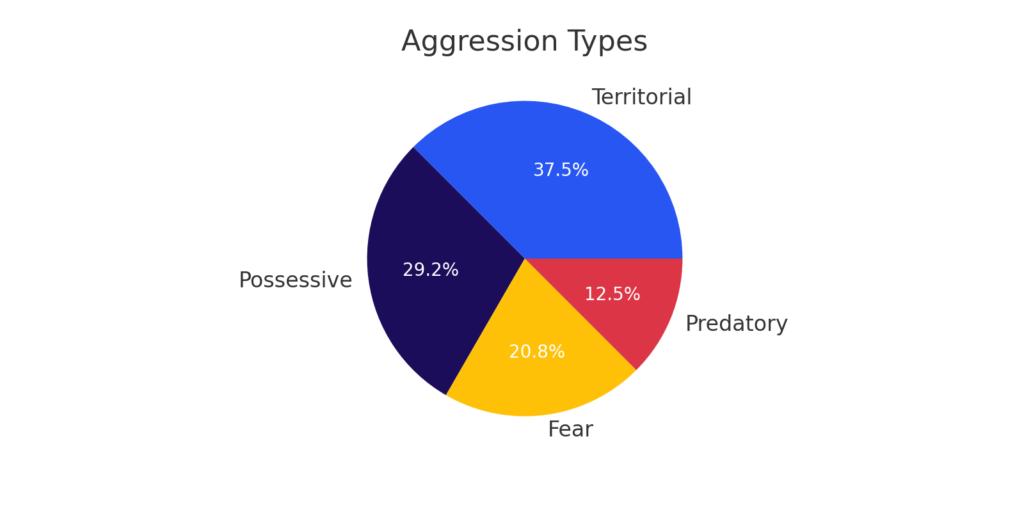
Understanding the Types and Triggers of Dog Aggression
Dog aggression generally falls into several common categories:
- Territorial aggression – Protecting areas like yards, houses, cars, or spaces from “intruders”
- Possessive aggression – Guarding resources like food, toys, treats, or resting spots from humans and other animals
- Fear aggression – Attacking due to phobias, lack of socialization, abuse, genetics, or confusing/threatening situations
- Predatory aggression – Stalking, chasing, and biting movement from children, cats, squirrels, etc.
These types of aggression often involve specific triggers and risk factors:
- Abuse or trauma – Past experiences can make a dog feel the need to protect itself
- Lack of socialization – Frightened reactions to unfamiliar people, animals, places, etc.
- Physical health issues – Pain, hormones, medications, or conditions can lower aggression thresholds
- Breed tendencies – Guarding and fighting breeds may show more territoriality
- Leash reactivity – Barrier frustration from wanting to interact with triggers
While specific causes will vary between individual dogs, recognizing common triggers is the first step toward tailored training solutions.
Consequences of Untreated Aggressive Dog Behaviors
Living with an aggressive dog can negatively impact safety and quality of life for families. Some potential risks include:
- Biting incidents – Even minor bites can cause injuries and emotional distress, especially for children
- Legal action & lawsuits – Owners may be sued and held liable for dog attacks and injury expenses
- Forced euthanasia – Many areas have breed legislation and bite incident limits
- Limitations on housing – Landlords frequently deny rentals to perceived dangerous breeds
- Difficulty finding care – Kennels, walkers, sitters often refuse aggressive dogs
- Stress & danger – Owners struggle to relax as they vigilantly manage their dogs
The difficulties of managing an aggressive dog combined with liability fears cause many owners to resort to surrendering or euthanizing their pets. But specialized training programs provide an alternative solution.
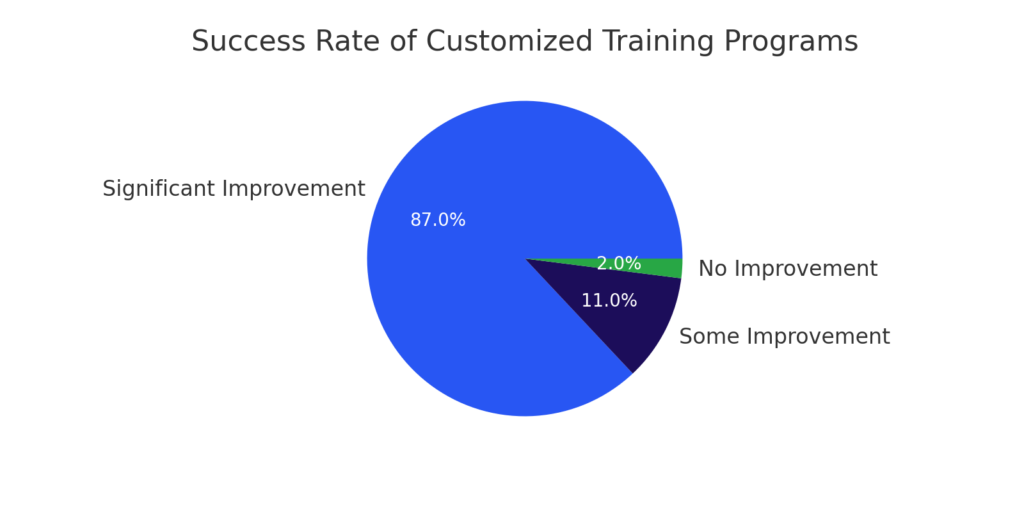
How Baltimore Dog Training Can Help Aggressive Dogs
While aggression issues can’t always be “cured”, a professional dog trainer in Baltimore can overhaul behaviors through customized training plans. Effective programs involve:
- Obedience foundation – Sit, stay, come, down, and walking skills
- Desensitization – Slowly exposing dogs to triggers while encouraging calm responses
- Advocacy – Giving dogs alternative behaviors to replace aggression
- Confidence building – Motivation and rewards to change emotional responses
- Management tools – Muzzles, gates, etc to control behaviors during early training
This comprehensive approach helps aggressive dogs better cope with stressors by learning new emotional reactions and physical routines.
Check Out Our Related Content Dog Aggression Content
What To Expect During Baltimore Aggression Training
Rehabilitating an aggressive dog requires an intensive training process. Here’s what owners can expect:
Initial Consultation
- Trainer meets with owners at home environment
- Observes and evaluates dog’s behaviors
- Discusses owner struggles, needs, risk factors, etc
- Outlines customized aggression plan
Early Training & Foundation
- First lessons focus on basic skills – loose leash walking, sit, stay, come, down
- Helps dogs cope by providing structure/confidence
- Gives owners tools to reinforce positive behaviors
Introducing Triggers
- The trainer sets up scenarios to expose the dog to triggers (people, dogs, environments)
- Uses high rewards to encourage disengagement
- Helps owners recognize calming signals and body language
Real World Practice
- Test obedience cues around varied distractions
- Provide advocacy cues – “go to mat” when stressed
- Wean dogs off food/toy rewards for compliance
Maintenance Training
- Troubleshoot any lingering reactivity issues
- Fine-tune obedience reliability
- Review tips for preventing regression
- Check-in appointments after program ends
With this stepped process, aggression training rewires dogs to make better choices when faced with triggers. While no training program can guarantee perfect behavior, most dogs show significant conduct improvements.
Choosing a Qualified Baltimore Dog Trainer
Not all trainers take appropriate approaches with aggression cases. Baltimore owners should look for:
- Customized Programs – No pre-set curriculums; plans tailored to each dog’s needs
- Positive Methods – Reward-based; no punishment or dominance techniques
- Experience – History rehabilitating various breeds and intense behaviors
- Proof of Knowledge – Demonstrable skills and theory comprehension
- Realistic Outcomes – Doesn’t promise “perfectly trained dogs”; focuses on management
- Follow-Up Support – Provides long-term resources and assistance
A skilled trainer aligned with veterinary guidance gives aggressive dogs the best odds at being able to live happily and peacefully long-term.
The Benefits of Baltimore Aggression Training
While helping aggressive dogs requires a substantial investment of money, time, and emotional effort, succeeding has profound rewards, including:
- A happier, calmer dog who can relax more and play
- An improved relationship and bond between owners and dogs
- Enriching activities like walks, dog sports, off-leash hikes
- Public access without embarrassing or dangerous incidents
- Peace of mind regarding family members’ safety
- Keeping dogs out of shelters or facing euthanasia
- Fulfilling the ethical duties of committed pet owners
In many cases, owners who considered surrendering aggressive dogs ended up with beloved companions after consistent training. The long-term dividends of hard work and patience early on can yield incredibly fruitful human-canine relationships.
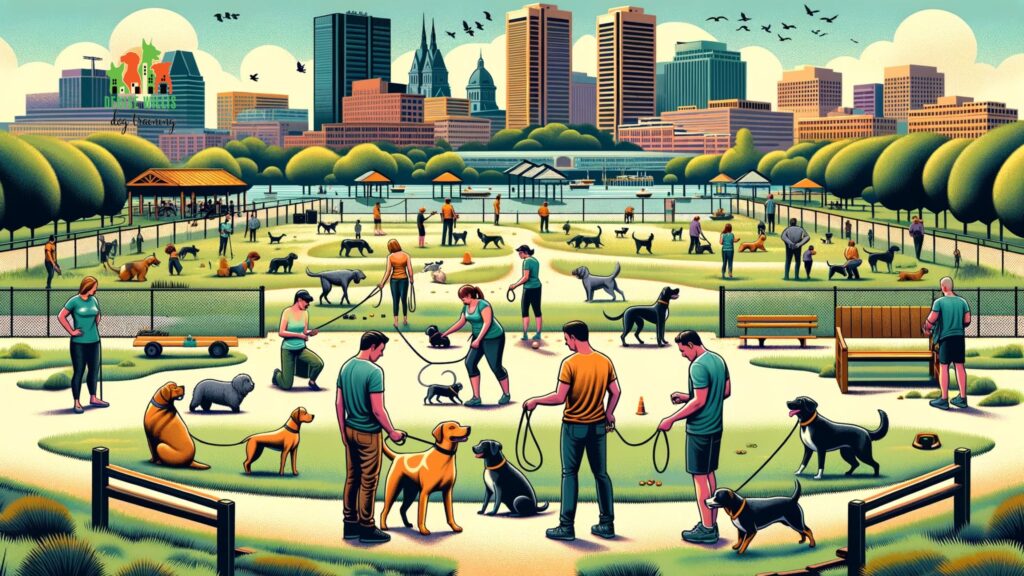
Start Your Baltimore Aggression Training Journey Today
If your dog displays behaviors like lunging, biting, growling, chasing movement, or guarding resources, specialized retraining can help tap into their potential to become better pets. While aggression issues stem from complex factors, customized training programs in Baltimore have proven successful at reducing reactivity and building trust.
The first step is contacting an experienced local trainer for an evaluation consultation. They can provide personalized guidance catered to your dog’s unique challenges. Lives busy with stimulation and commitments rarely allow adequate time for self-training experiments. So invest in your dog – and family’s safety – by seeking professional support.
With compassion, boundaries, and skill-building, even dramatic behavior cases can transform. Choose to be committed, consistent, and hopeful on your journey with an aggressive dog. The destination of better coexistence and happiness is well within reach through training.
Final Thoughts: The Key to Stopping Aggression in Your Pup
As you can see, successful dog aggression training requires dedication, patience, and being able to understand your dog’s unique needs. While it can be frustrating dealing with unwanted behaviors, the reward of having an obedient and happy companion is invaluable.
At DW Dog Training, our goal is to equip you with the knowledge and skills to properly communicate with your dog. We want to empower you to train your furry friend and deepen the special connection you share.
Our customized training programs are designed to address the specific issues you may be facing, whether it’s basic manners or more serious behavioral problems. With the right guidance, any dog can learn new ways to appropriately interact with their environment and handler.
If you feel like you’ve reached the end of your leash, don’t worry – you have options. Contact us today to learn more about our private lessons, board and trains, and other dog training services. Our experienced team is ready to help get your relationship with your four-legged friend back on track.
Let us show you the rewarding difference clear communication, trust, and bonding can make. We look forward to working together towards your goals and establishing a friendship with your dog that will stand the test of time.


